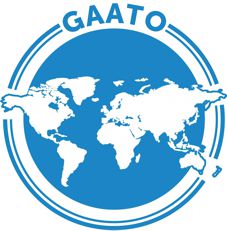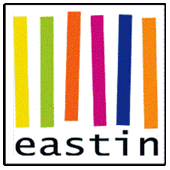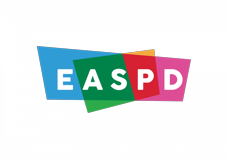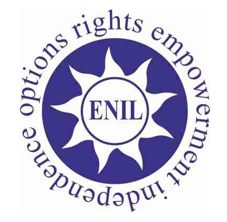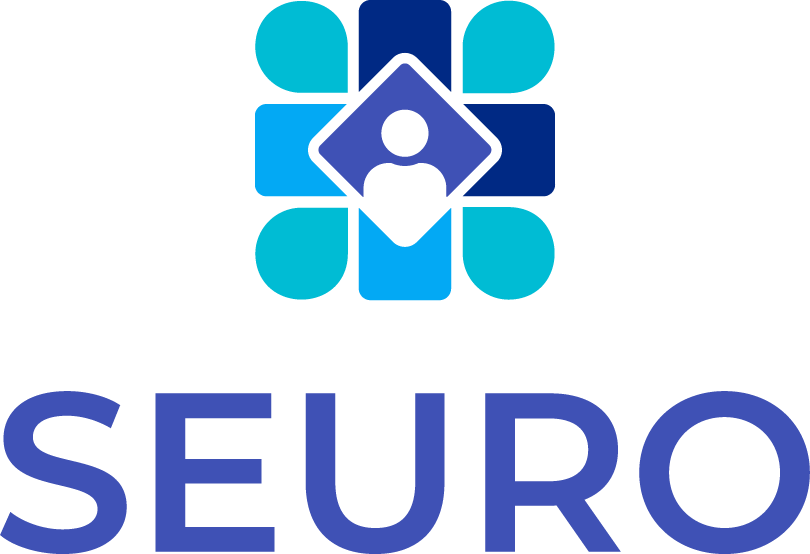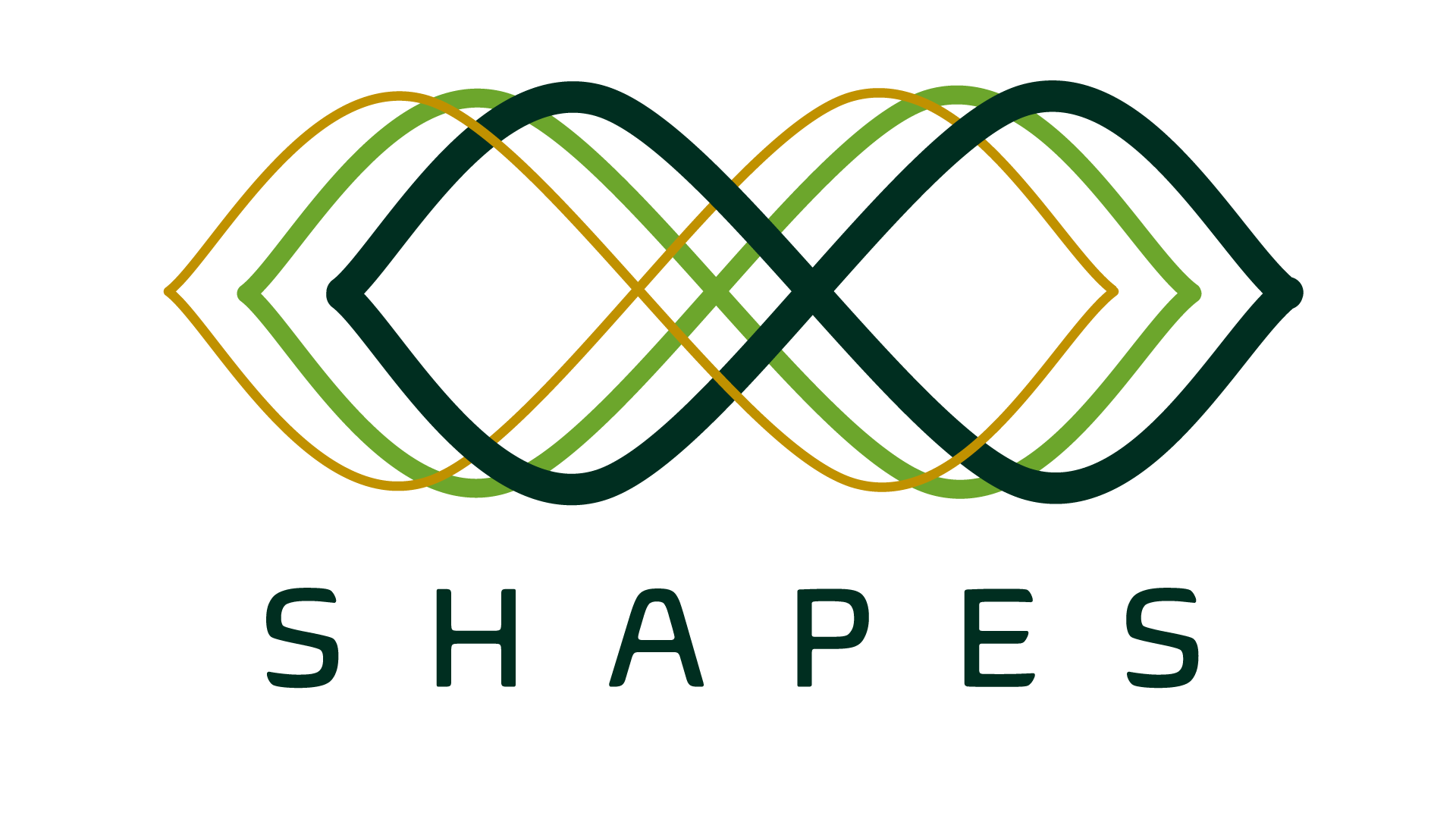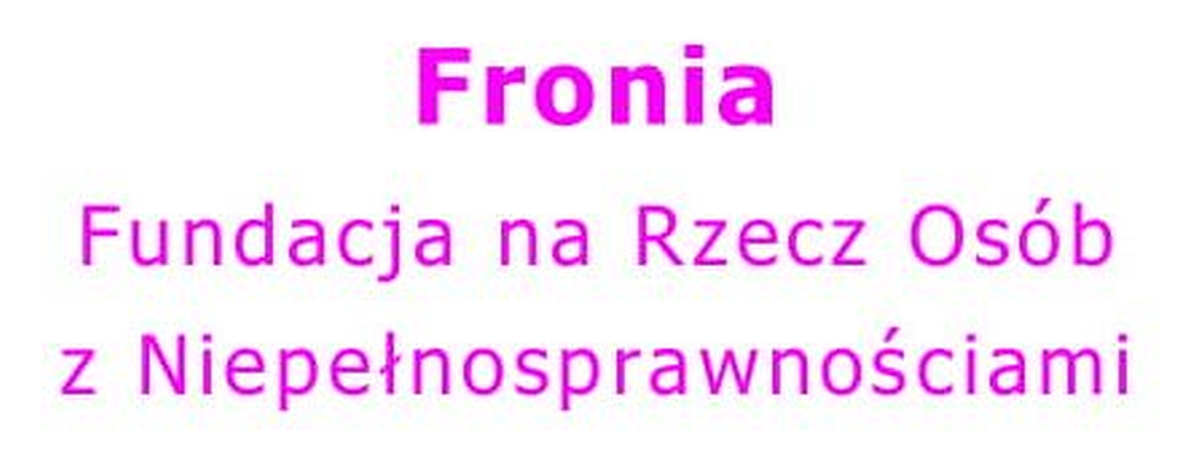Subject to change - check back end of september 2023!
On this page, we will announce organizations and institutions as co-operating partners of ICCHP 2024.
- How to become a co-operating partner of ICCHP 2024?
- What are my duties as co-operating partner of ICCHP 2024?
- What are my benefits of becoming a co-operating partner of ICCHP 2024?
Co-Operating Partners of ICCHP 2022
| Name | Description | Logo |
|---|---|---|
| AccessibleEU Cetner | AccessibleEU is one of the flagship initiatives proposed by the European Commission Strategy for the Rights of Persons with Disabilities 2021-2030. It is a resource Centre on accessibility working on areas such as built environment, transport, information and communication technologies to ensure the participation of persons with disabilities in all areas of life on equal basis with others. |  |
| TRIPS Project Consortium | The ambition of the TRIPS project is to make public transport more accessible for persons with disabilities, elderly voyagers and really everyone. The project has received funding from the European Union’s Horizon 2020 Research and Innovation Programme under Grant Agreement no. 875588. | |
| Global Alliance of Assistive Technology Organizations (GAATO) | The Global Alliance of Assistive Technology Organizations is an independent association established under Swiss law in Geneva in 2020. Among its members are the major AT professional organizations in the world, including RESNA, ISPO, ATIA, RESKO, RESJA, ARATA, IAAT, AATA, TREATS, EASTIN. AAATE is proud to be among the founding members. | |
| The Austrian Association in support of the blind and visually impaired | The Austrian Association in support of the blind and visually impaired is an independent non-profit-organisation founded in 1935. With more than 7.300 members, it is Austria’s oldest and largest self-help organisation to improve the conditions and standards of living of its clients. The Hilfsgemeinschaft is a member of numerous bodies and committees in which it represents the interests of its blind and visually impaired members on natinal basis including Österreichischer Behindertenrat (formerly ÖAR), ASI – Austrian Standards Institute, as well as on international level in CEN/CENELEC, ITU, IAAP, ZeroProject, AAATE.....We have 100 employees in 2 places in Austria, AT, especially in ICT, is one of our core topics. | |
| The Global Assistive Technology Information Network (EASTIN) | EASTIN is the leading information system on assistive technology products worldwide. It aggregates information from eight major public national databases (from Italy, Germany, Denmark, France, Belgium, UK, Australia and Israel) and provides a single entry point for assistive product searches, including technical details of each product and related helpful information (companies, articles etc.) as well as access to further information in the national information system offering guidance for appropriate choices. The EASTIN information system is operated by the EASTIN Association, currently composed of 7 Partners Organizations, 8 Affiliate Organizations and 13 National Contact Organizations, overall covering 28 Countries. | |
| DATEurope | DATEurope is the newly launched Digital Assistive Technology Industry Association for Europe. We seek to deliver a range of activities to raise awareness of the benefits of DAT, such as participating in regional, national and international events and engaging with end-user representation bodies to reduce through proactive communications on the benefits of DAT We further aim to lobby Governments to legislate for DAT, including funding and research, inclusion in planning and proactive consideration. We enable Industry networking opportunities, and international trade through events, forums and newsletters facilitating connection of buyers, distributors, publishers and manufacturers and aim to foster emerging technologies and stimulate innovation in DAT. | |
| EASPD | EASPD, a non-profit NGO in the disability sector, promotes the views of over 20,000 social services and their umbrella associations. We promote equal opportunities for people with disabilities through effective and high-quality service systems. Everything started in 1994 with a road trip. After 10 years of hard work, EASPD opened up an office in the heart of Brussels in 2005 and became fully professionalised! We welcomed members from the 47 Council of Europe member countries and the European Union. We believe that support services play a key role in enabling people to enjoy their human rights on an equal basis, beyond disability or any other factor. Our goals are the full implementation of the UN Convention on the Rights of Persons with Disabilities, the provision of high-quality, and user-centred services running in an accountable, efficient and effective way, fair working conditions and lifelong learning opportunities for staff employed in services. | |
| ENIL | Our organisation is a Europe-wide network of disabled people, with members throughout Europe, and beyond. ENIL’s mission is to advocate and lobby for Independent Living values, principles and practices, namely deinstitutionalization, a barrier-free environment, provision of personal assistance support and adequate technical aids, together making full citizenship of disabled people possible. ENIL’s activities target European, national and local administrations, politicians, media, and the general society. ENIL works to strengthen the empowerment of disabled people, mainly through providing resources for peer support and peer-to-peer training. ENIL enhances the European disability sector by providing an arena for the sharing of disabled people’s experience of services and by providing economical, logistics and technical expertise on independent living. ENIL is a pan disability organization, which means that we promote Independent Living for all disabled people. ENIL has an active Youth Network, which brings together young disabled people from across Europe and focuses on issues of interest to them (such as inclusive education and employment) consulted on the relevant policy initiatives and asked to represent ENIL at different events. | |
| visuAAL | visuAAL (Privacy-Aware and Acceptable Video-Based Technologies and Services for Active and Assisted Living) is a four-year (2020-2024) Marie Skłodowska-Curie Innovative Training Network, which brings together 5 beneficiaries and 14 partner organisations from Austria, Germany, Ireland, Italy, Portugal, Spain, Sweden, and United Kingdom. visuAAL provides a transdisciplinary and cross-sectoral combination of training, non-academic placements, courses and workshops on scientific and complementary skills to 15 high achieving Early Stage Researchers. The aim of visuAAL is to bridge the knowledge gap between users’ requirements and the appropriate and secure use of video-based AAL technologies to deliver effective and supportive care to older adults managing their health and wellbeing. visuAAL seeks to increase awareness and understanding of the context-specific ethical, legal, privacy and societal issues necessary to implement visual system across hospital, home and community settings, in a manner that protects and reassures users; outputs will stimulate the development of a new research perspective for constructively addressing privacy-aware video-based working solutions for assisted living. |  |
| SEURO | SEURO (Scaling EUROpean citizen driven transferable and transformative digital health) is an EU funded Horizon 2020 project (grant no. 945449). The SEURO project follows on from a previous Horizon 2020 project called ProACT (Grant No 689996, please see: http://proact2020.eu). The aim of ProACT was to develop and evaluate (at a proof of concept level) a digital platform (the ProACT platform) to integrate a wide variety of new and existing technologies to improve and advance home-based self-management and integrated care for older adults (over 65 years) with multimorbidity, including associated co-morbidities (focus was on diabetes, chronic heart disease/failure and chronic obstructive pulmonary disease (COPD). SEURO engages a multidisciplinary EU consortium of four public and eight private organisations (including one of the world's leading ICT companies, the largest home care provider and two EU service provider and technology networks). Partners have a successful collaborative track record. Together we are in a strong position to consolidate EU research assets into a new comprehensive approach for the scale-up and transfer of digital integrated care solutions. Within the SEURO project, the research teams will advance three novel implementation support tools targeted towards digital health solutions. These consist of a transferability self-assessment tool (ProTransfer) to assess preparedness for solution transfer within organisations; a behavioural change framework checklist(ProBCF-C) to optimise a solution to people’s needs; and an artificial intelligence (AI) prediction model (ProInsight) to assess the impact of a solution on health system performance. Effective Implementation Hybrid Trials (720 older adults in total, with associated care/support actors) will be carried out with ProACT within health services (Ireland, Belgium Sweden to measure platform effectiveness), with embedded process evaluations to understand the process for successful ‘real world’ implementation. Participants will have at least two of the following: cardiovascular disease (excluding Stroke), a respiratory condition and diabetes. Commercial potential will be validated during the project supported by an exploratory trial (Italy) to evaluate the impact of SEURO in facilitating a procurement process for healthcare service providers aiming to implement ProACT. | |
| SHAPES | The Smart & Healthy Ageing through People Engaging in Supportive Systems (SHAPES) Innovation Action intends to build, pilot and deploy a large-scale, EU-standardised open platform. The integration of a broad range of technological, organisational, clinical, educational and societal solutions seeks to facilitate long-term healthy and active ageing and the maintenance of a high-quality standard of life. Mediated by technology, in-home and local community environments interact with health and care (H&C) networks contributing to the reduction of H&C costs, hospitalisations and institutional care. | |
| FRONIA |
Fronia promotes accessibility among public institutions in Poland. Our aim is to make the change related to accessibility rights, to perceive accessibility as a human right. We focus on the following aspects:
|






